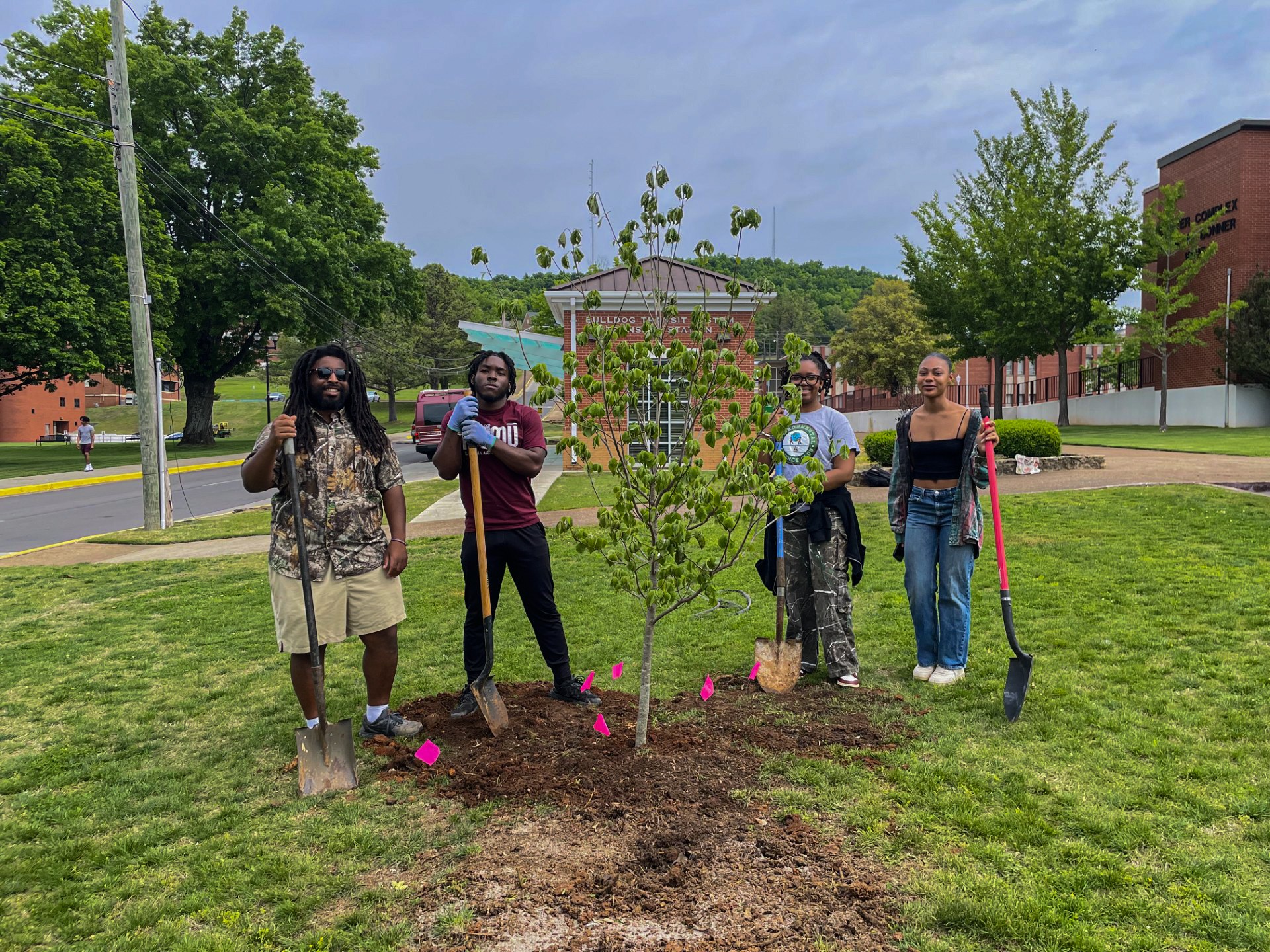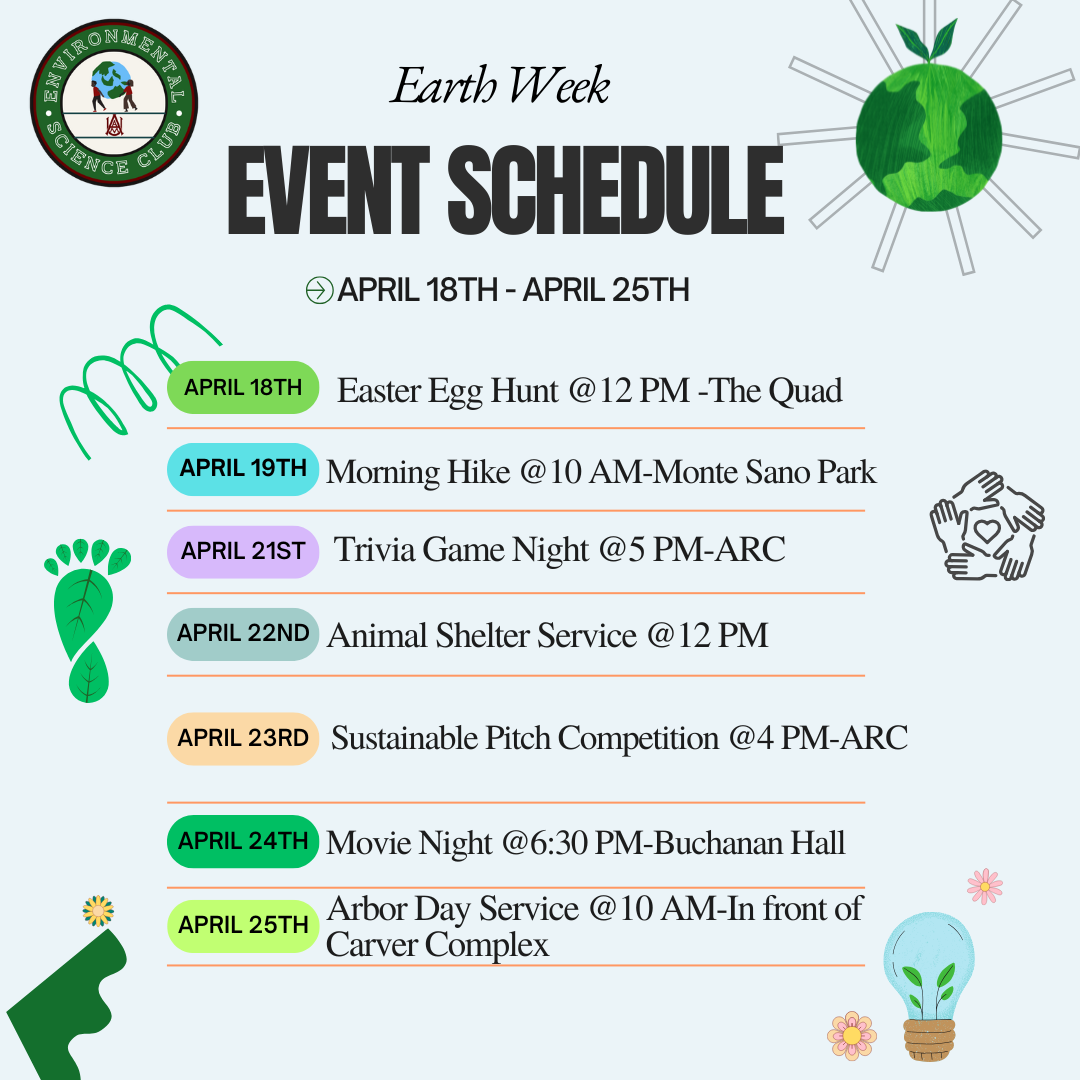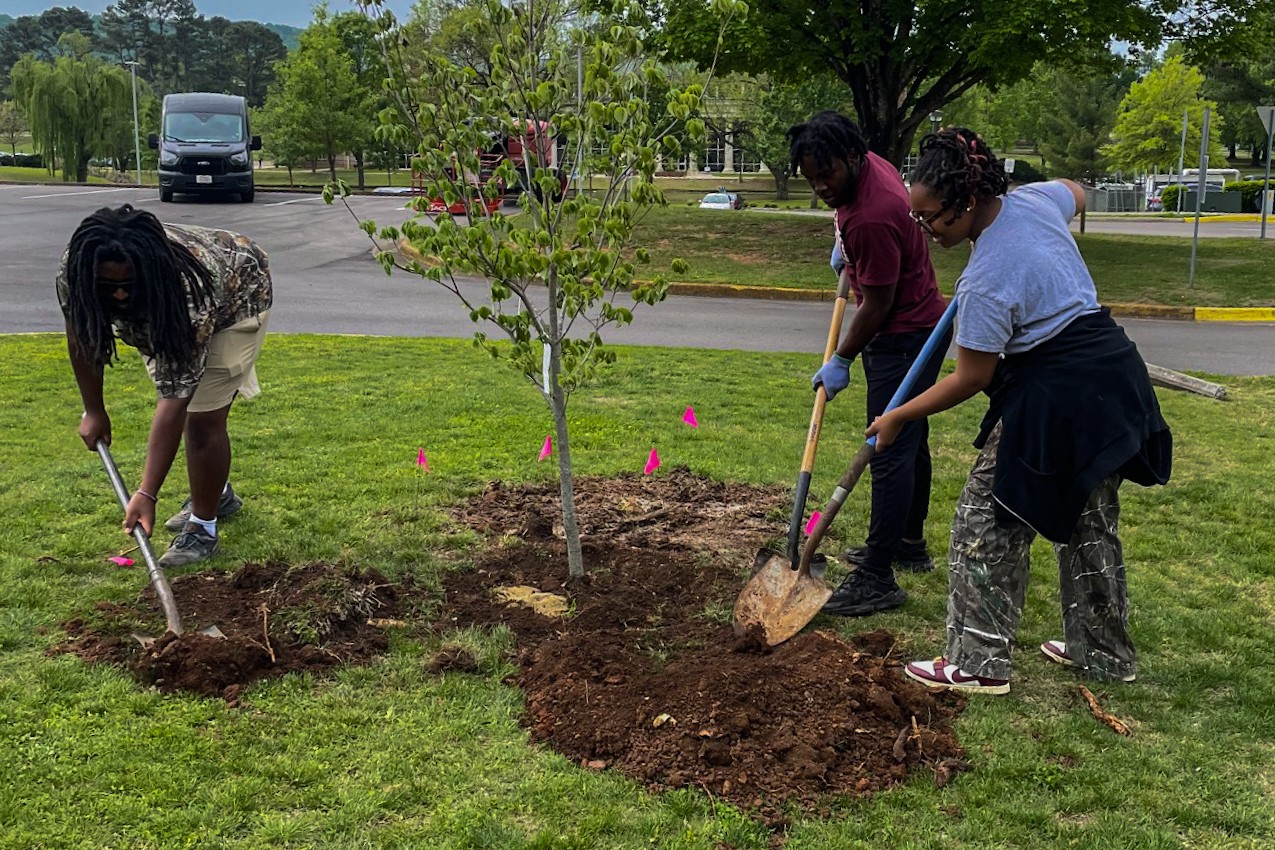AAMU Students and Faculty Lead the Charge in Sustainability

Alabama A&M Students Cultivate Change on Earth Day and Beyond
At Alabama A&M University, Earth Day is more than a one-day observance – it’s a call to action echoed in the classrooms, labs, and campus green spaces throughout the year. Guided by this year’s global Earth Day theme “Our Power, Our Planet,” students and faculty are using their voices, research, and community partnerships to push for cleaner energy, environmental equity, and a more sustainable future.
Dr. Elica Moss, an environmental microbiologist whose work centers on environmental sustainability and microbial water quality, says the urgency around climate and pollution issues is deeply tied to public health, especially in communities like Alabama’s Black Belt.
“I conduct water quality research that evaluates the presence of E. coli and other fecal bacteria in surface and irrigation water under various climatic conditions that are crucial for protecting public health, ensuring food safety, and managing water resources, especially as climate change impacts water availability and contamination,” said Moss.
Her work with the Transforming Wastes into Economic Assets for Sustainability, Resilience, and Prosperity initiative explores how hazardous waste can be converted into green construction materials through negative emission technology. The goal? To provide affordable solutions that reduce pollution while uplifting vulnerable communities.
She also leads Alabama’s efforts in the EPA’s Thriving Communities Technical Assistance Center in partnership with RTI International, helping address environmental concerns such as clean energy transitions and exposure to hazardous materials.
“I am excited to see students get involved in environmental sustainability efforts,” said Moss. “The passion that I see from them and the projects they bring forth are inspiring. They understand that by living sustainably, we plan not only for our own well-being but also that of future generations.”
“I make my daily life more sustainable by using only reusable cups and straws, and I never litter,” said Erica Doss, a junior biology major from Andalusia, Alabama.
Alexis-Marie Parrish, a senior environmental science major from Clarksville, Tennessee, leads both the AAMU Environmental Science Club and the Enhance Our Environment Initiative through the Gamma Mu Chapter of Alpha Kappa Alpha Sorority, Inc. She helps organize events that highlight environmental harm and the role students can play in reversing it.
“I plan various events on and off campus to promote student involvement and awareness of sustainability,” she said.
The Environmental Science and Forestry Clubs offer year-round opportunities for students to stay engaged, including monthly campus cleanups. On Arbor Day, students plant trees and shrubs around campus. This is their Earth Week Event Schedule and they invite all students to take part.

As part of a collaboration with the Alabama Department of Environmental Management (ADEM) students are also contributing to a Brownfields Workforce Development Project, conducting site inventories and helping communities envision healthier futures. For many students, simply being on campus has opened their eyes to the importance of protecting the natural world.
“The most important thing I’ve learned is how Alabama A&M uses a large amount of land in different ways to help sustain the local community,” said Jaiden Ellington, a junior environmental science major from Minneapolis. “There's a Community Farm near campus and so much innovative research underway at the Winfred Thomas Agricultural Research Station.”
Even as they face climate anxiety and environmental inequity, students remain hopeful and action-oriented.
“I believe our generation is more mindful of the environment and making better, more sustainable choices,” said Adriana Snow, a senior environmental science major from Seattle. “However, we’re facing many of the same challenges as previous generations, the difference is how we choose to address them.”
Snow believes awareness is key, especially when it leads to mindful consumption and waste reduction.
“Reducing your environmental footprint can help tackle multiple issues at once,” she said. “This mindset is key to addressing global environmental challenges.”
Sophomore food science major Khendal Jackson from Louisville, Kentucky, agrees that the little things make a difference.
“If I could tell everyone one thing to protect the planet it would be to start with the small things and work your way up,” said Jackson. “The little things matter and I don’t think that’s what most people get. You can start small but finish big in the end with recycling.”

Moss believes universities like Alabama A&M play a critical role in shaping not only research and policy, but everyday habits that reduce environmental impact.
“Universities can model sustainable practices through renewable energy, waste reduction, and efficient resource management,” she said. “AAMU is doing its part with the use of zero-emission electric buses on campus. As we continue to grow, we can promote the design of energy-efficient buildings and engage more with local communities, businesses, and governments to address climate challenges together.”
For students seeking to make a real impact on climate change, Moss offers practical advice: eat more plant-based meals, carpool, thrift clothes, help restore local parks and waterways, and share what you learn.
“By sharing your knowledge about climate change and its effects, you can help build a network of informed and empowered peers,” she said. “The power to protect the planet is in all of our hands.”